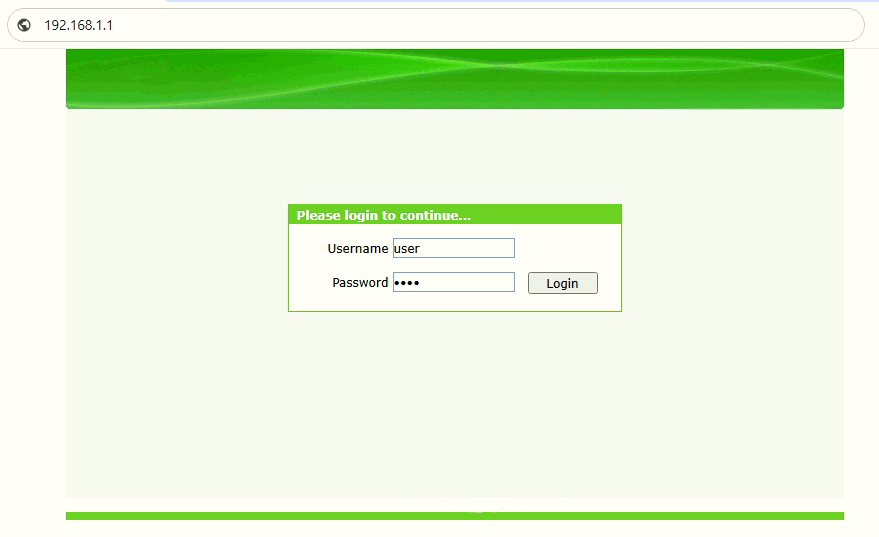192.168.1.1 is one of the most widely used default IP addresses for accessing router admin panels. This private IP address serves as the gateway to configure Wi-Fi settings, change passwords, manage network security, and control various router functions. Major router manufacturers including Linksys, NETGEAR, D-Link, and select TP-Link models utilize 192.168.1.1 as their default management interface.
How to login to 192.168.1.1?
Follow these steps to access your router’s admin panel:
- Connect your device to the router via Wi-Fi network or Ethernet cable.
- Open a web browser (Chrome, Firefox, Safari, or Edge).
- Type http://192.168.1.1 in the address bar and press Enter.
- Enter the default username and password when prompted.
- Click “Login” or “Sign In” to access the admin panel.
Note: Ensure you’re typing the IP address correctly – not 192.168.l.1 (with letter ‘l’) or adding “https://” or “www” before the address. IP addresses contain only numerical digits.
Default Router Passwords for 192.168.1.1
| Router Brand | Username | Password |
|---|---|---|
| Linksys | admin | admin |
| NETGEAR | admin | password |
| D-Link | admin | (blank) |
| TP-Link (selected models) | admin | admin |
| Belkin | admin | (blank) |
Popular Router Brands Using 192.168.1.1
- Linksys: Most Linksys routers including E-series, EA-series, and Max-Stream models
- NETGEAR: Nighthawk, Orbi, and AC series routers
- D-Link: DIR and DAP series wireless routers
- Belkin: AC and N series routers
- Cisco: Small business and home routers
How to Change Wi-Fi Password and Network Name?
Change Wi-Fi Network Name (SSID):
- Log into the router admin panel using the steps above.
- Navigate to “Wireless” or “Wi-Fi Settings” section.
- Locate the “Network Name” or “SSID” field.
- Enter your preferred Wi-Fi network name.
- Click “Save” or “Apply” to confirm changes.
Change Wi-Fi Password:
- Access the wireless security settings in your router panel.
- Find “Wi-Fi Password,” “Passphrase,” or “Network Key” field.
- Select “WPA2” or “WPA3” encryption for optimal security.
- Enter a strong password (minimum 8 characters recommended).
- Save the settings and wait for the router to restart.
Unable to Access 192.168.1.1?
If you cannot reach the login page, try these solutions:
- Ensure your device is connected to the router’s network.
- Some routers use different default IPs like 192.168.0.1 or 10.0.0.1.
- Delete cookies and browsing data, then try again.
- VPN connections may interfere with local network access.
- Switch to another browser if the issue persists.
Forgot Login Password?
If you’ve forgotten your router’s admin password:
- Check the router label on the back or bottom for default password information.
- Consult the router manual or manufacturer’s website.
- Perform a factory reset by pressing and holding the reset button for 10-15 seconds using a paperclip.
- After reset, use the default username and password listed above.
Important: Factory reset will erase all custom settings including Wi-Fi passwords, port forwarding rules, and parental controls. You’ll need to reconfigure your router after the reset.

